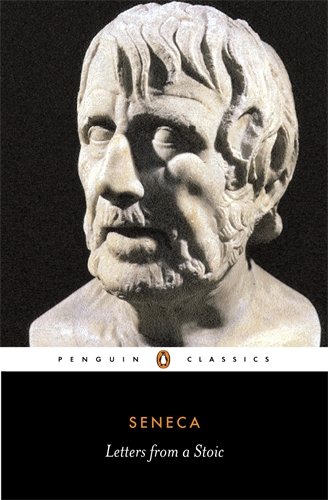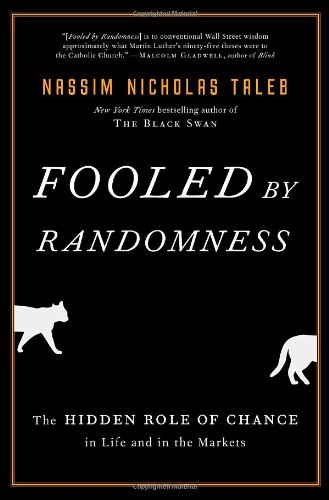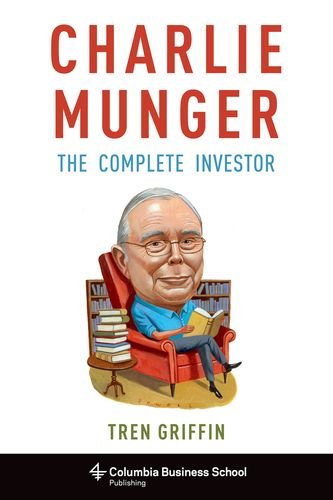As the new year approaches most people start thinking of what resolutions they’d like to make for the new year, to attempt to improve their life and themselves. I just read Seneca’s Letters from a Stoic, which had some good advice for living life and working to improve oneself. One quote in particular seemed especially appropriate at this time of year, as people are creating their resolutions for the next year. Regarding making plans for the future, Seneca said:
I shall put myself under observation straight away and undertake a review of my day – a course which is of the utmost benefit. What really ruins our characters is the fact that none of us looks back over his life. We think about what we are going to do, and only rarely of that, and fail to think about what we have done, yet any plans for the future are dependent on the past.
When making resolutions most people tend to think only of what they would like to become or achieve and don’t consider their past and factor their own past behavior into their plans for the future. Instead of just focusing on the future, we should first look back at our past, particularly the previous year, and attempt to identify what mistakes we have made, or the things we wanted to do, but did not, before attempting to plan for the future. Our past can give us a strong indication of how we will likely behave going forward, despite our best intentions, and taking that into account, we can create a better and more realistic plan for the new year.
Instead of creating a single, large, difficult resolution, that will most likely get abandoned, or forgotten, after a month or two, we should instead break it down into smaller, more attainable goals that we can keep track of on a weekly or monthly basis. A large resolution is typically too vague, allowing us to put it off, after all, we’ve got the entire year to work at it. By dividing up a large goal into smaller, specific steps we can make more continuous, incremental progress towards our overall goal.
In addition to too vague goals, one of the other biggest impediments to attaining or accomplishing our goals is distractions. We allow ourselves to get distracted surfing the Internet or watching television instead of working towards our betterment. We end up doing what is easy, or tell ourselves that we’ll take a short break, then hours later find we’ve gotten distracted and haven’t accomplished what we’d intended to do. On distractions Seneca had this to say:
Let us cut out all distractions and work away at this alone for fear that otherwise we may be left behind and only eventually realize one day the swiftness of the passage of this fleeting phenomenon, time, which we are powerless to hold back. Every day as it comes should be welcomed and reduced forthwith into our own possession as if it were the finest day imaginable. What flies past has to be seized at.
It’s easy to get distracted, especially when we are trying to work on something difficult, although even when we have free time, the choice between doing something productive that can benefit us in the long-term and indulging in a short-term distraction requires an exercise of willpower and long-term thinking.
If we allow distractions to continuously occupy our time, we can find ourselves looking back at the past and wondering where the time went and realize that we have nothing to show for it. By seizing each day and working, no matter how little, towards our overall goals, we can look back at where we started and find that we’ve made large gains through a series of small steps.
Regarding distractions I was reminded of what another famous stoic, Marcus Aurelius had to say in Meditations:
Do external things distract you? Then make time for yourself to learn something worthwhile; stop letting yourself be pulled in all directions. But make sure you guard against the other kind of confusion. People who labor all their lives but have no purpose to direct every thought and impulse toward are wasting their time–even when hard at work.
In addition to the obvious distractions, mindlessly surfing the Internet or sitting on the couch watching television, we can find ourselves seemingly actually working at something, but the work has no real benefit. Often when we have real work that we are supposed to be doing, but are not sufficiently motivated to do at the time we create busy work for ourselves, as a way to avoid working on our real task, while also being able to tell ourself that we’re still working. This busy work is just another form of distraction that can prevent us from achieving our goals. On trying to avoid and eliminate these distractions Marcus suggests:
Because most of what we say and do is not essential. If you can eliminate it, you’ll have more time, and more tranquility. Ask yourself at every moment, “Is this necessary?”
While this is an incredibly simple way to try to avoid distractions, it is not so easy to do. It requires the awareness to remember to question what we are doing and why we are doing it. A good way to practice and develop this awareness is through meditation, where as you focus on your breathing, you should attempt to recognize when your thoughts are wandering, and return your focus back to your breath.
Although distractions can prevent us from accomplishing our goals, they are also a necessity. Without having some kind of outlet, we’d never be able to relax and replenish our willpower so that we can continue to work towards our goals with purpose and meaning. The trick is to find and work to eliminate or minimize the unnecessary distractions, while leaving ourselves the occasional release.
A key to avoiding distractions is to make resolutions, or set goals, that are attainable and measurable, by having something relatively small to work at, and being able to see our progress towards a goal, it helps to provide us with a feedback loop that can help motivate us to continue making progress, and working towards our goals.




